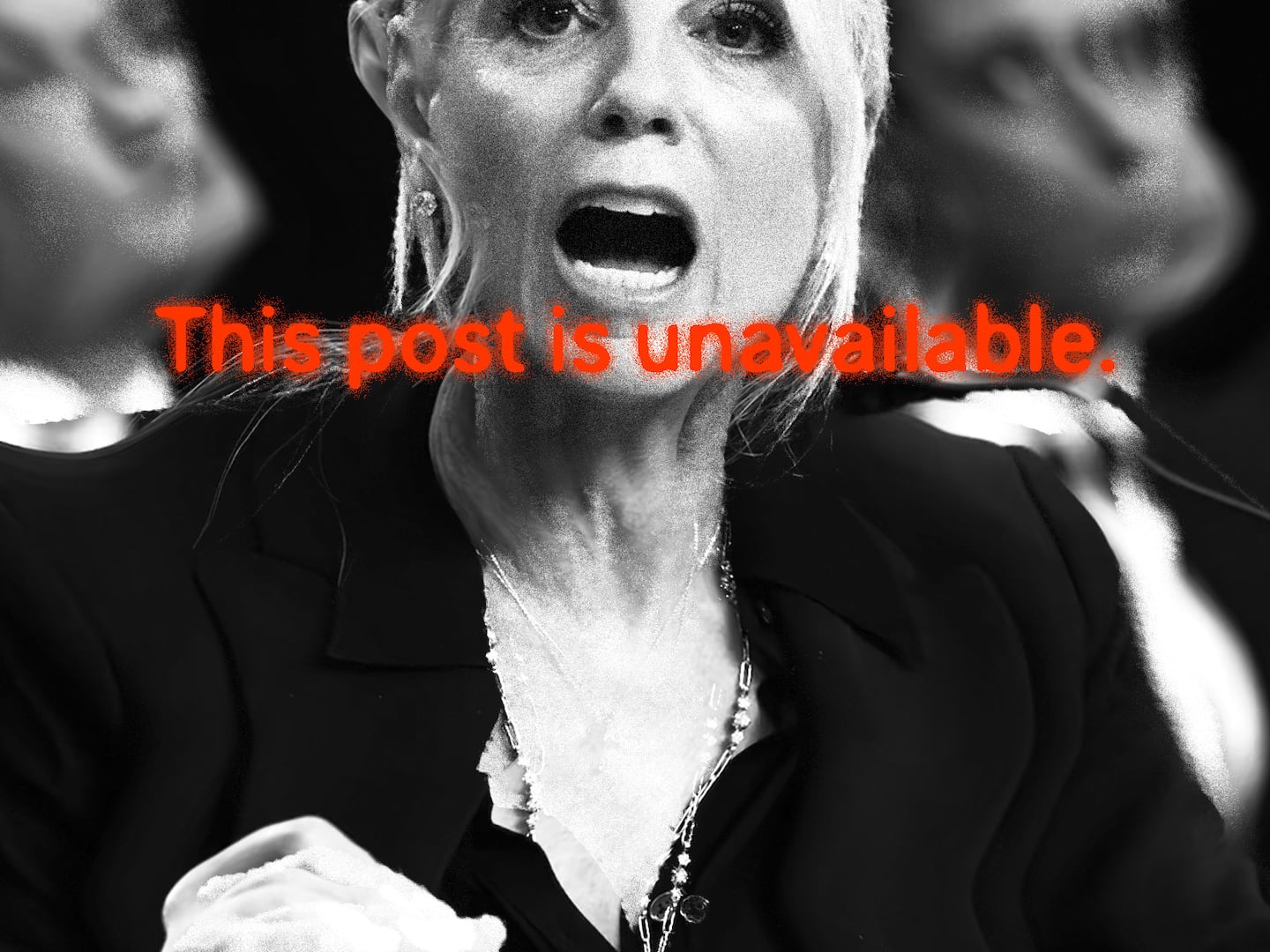When a TV show’s protagonist is introduced as “Fatty Patty,” it’s going to raise some eyebrows. When that character is played, Shallow Hal-style, by the stunning—and thin—former Disney star Debby Ryan in a fat suit, those eyebrows might just leap off people’s heads. Then came the trailer.
The trailer for Netflix’s Insatiable revealed that the show’s plot appears to depict what happens when Fatty Patty has her jaw wired shut, loses an immense amount of weight, re-emerges as her high school’s hottie, and, now “conventionally attractive,” exacts a revenge mission against all those who made her life so miserable when she was overweight.
A fire tornado of backlash emerged, accusing the series of fat-shaming and sending the message that a person’s life can only improve if they lose weight; that being skinny is, in some way, “winning”; and that fat women couldn’t possibly stand up for themselves or find happiness. A petition emerged demanding that Netflix cancel the show.
Of course, this reaction was all from a trailer. The reflex outrage was reminiscent of what befell the recent Amy Schumer comedy I Feel Pretty, which was lambasted after its trailer hinted at a similar body-shaming message, only for the film itself to reveal a far more nuanced and positive narrative of self-acceptance. Lauren Gussis, Insatiable’s creator, as well as its stars Ryan and Alyssa Milano, urged audiences to give it a chance and not judge the entire show based on one trailer.
Having watched the first six episodes of Insatiable, we can say that the way it portrays body image is more nuanced that what the trailer suggests. But more nuanced certainly doesn’t mean good, or even valuable.
Insatiable is a harsh example of the best intentions yielding the worst results.
The show is meant to be satire, a tool often used to confront sensitive topics and expose our biases and vulnerabilities surrounding those issues. Yet Insatiable is unforgivably inelegant as satire. It fails not only to land its purportedly progressive message about body image and weight, but also its storylines tackling sexuality, sexual agency, classism, race, and transgender acceptance.
It’s not hard to imagine the show’s creative team earnestly believing in their many missions. Insatiable boasts a sprawling cast of ethnically diverse characters, broaches several different coming out stories, casts trans actors, and attempts to teach teenagers valuable lessons with a mischievous comedic edge, eschewing the kind of schmaltz that might make them feel patronized.
But in reaching for an extreme, campy tone, it instead comes off as tone-deaf.
The first string of episodes introduce two different storylines involving statutory rape. In one, a teenager falsely accuses an older man of molesting her—arguably not the most constructive way into a #MeToo storyline amid today’s broader conversations on the topic.
Patty’s first instinct when she’s newly skinny is to use sex as a weapon, pitching her body to two older men.
One coming out storyline is treated with admirable delicacy. Another comes so far from left field that it nearly betrays the character, torpedoing an excellent point the show had made about masculinity and gender norms. Later, a teenage girl who leaks a nude selfie of herself comes to regret it—though not for the reason one might think: “I just figured everyone would think I’m a slut,” she says. “Now they think I’m a lesbian and that’s way worse.”
We understand the presumed intention of the satire’s edge. But the darkness and flippancy of the jokes are rarely earned, resulting in too much dialogue soured by a certain ugliness, rather than the exposure of any provocative truth.
Another pivotal scene finds thin Patty bonding with a transgender girl over their lingering insecurities and reluctance to wear bikinis in public. (There is little continuity to these insecurities. In other scenes, Patty strips down to her underwear to wantonly seduce older men.)
“I used to be fat,” Patty tells her. “I used to be a guy,” she replies. “If anybody understands being uncomfortable in my own skin, it’s me.” It falsely equates a hot white woman’s “I just need to lose 10 more pounds” insecurity with the gender identity struggle and journey of a trans person.
As for the accusations of fat-shaming, aside from the grotesque spirit behind the Fatty Patty flashback scenes, there are more than a few truly honest and meaningful moments in which Patty confronts her body image and self-worth. The issue is the whiplash-inducing way the show then contradicts these moments in service of a sexy, soapy plot.
In reading about all this, you might not expect that the greater throughline of the show is Patty’s entry into the world of beauty pageants. She is recruited by her lawyer, played by Dallas Roberts, who moonlights as a pageant coach and sees her as his ticket to the top of that world.
The thing is, there’s a lot of fun to be had in Insatiable, and in that world. There is a nearly absurd array of characters orbiting Patty and her lawyer/pageant coach, Bob. They’re all written so brightly as to shine in more than a few moments—Alyssa Milano as Bob’s wife and Sarah Colonna as Patty’s mom, in particular, give wonderful, bold performances. But too often, these bright characters mixed all together prove almost blinding.
There’s a soap opera nature to the show that, for all of its problems settling on a coherent tone, makes the episodes move quickly. The series, in turn, is appropriately bingeable. But that soapiness is another of the show’s missteps. Nearly every character conspires against every other and almost none of their actions are well-intentioned. That collective evilness juxtaposes against the intended messaging’s positivity.
At the point of this publishing, two days before the show’s release, the Change.org petition in protest at the series crossed over 220,000 signatures.
“For so long, the narrative has told women and young impressionable girls that in order to be popular, have friends, to be desirable for the male gaze, and to some extent be a worthy human...that we must be thin,” the petition states, urging Netflix to cancel it before the premiere. “This series will cause eating disorders, and perpetuate the further objectification of women's bodies. The trailer has already triggered people with eating disorders. Let's stop this, and protect [against] further damage.”
In an interview with Vanity Fair, Gussis acknowledged and validated the criticism of the show, but urged audiences to give it a chance. “I think that once people see the show, they will understand how deeply I understand all of the things they’re actually upset about,” she said.
“So many of the messages I believed as a kid growing up were, if you fix your outside, suddenly you’re a good person,” she told Vanity Fair, explaining that she’s struggled with binge-eating since the age of 12. She thought, “If I only looked this way, or did this thing, I would be a popular 17-year-old girl.” But “the more attention I put on dieting or exercise, the less attention I put on my inside. Then I got angrier and angrier and I didn’t understand why.”
That point is gently made, but gets lost amid the louder messiness of the series. It is a shame, as a TV show confronting this subject with more creative eloquence wouldn’t just be welcome, but, as this whole controversy proves, might even be culturally necessary.
Insatiable is a satire very much rooted in Gussis’s own journey, one that clearly hits a raw nerve for a lot of people. But taken as a piece of television that purports to send important messages—body image is the tip of the iceberg—to a target teenage audience, the execution is a woefully misguided big swing.






